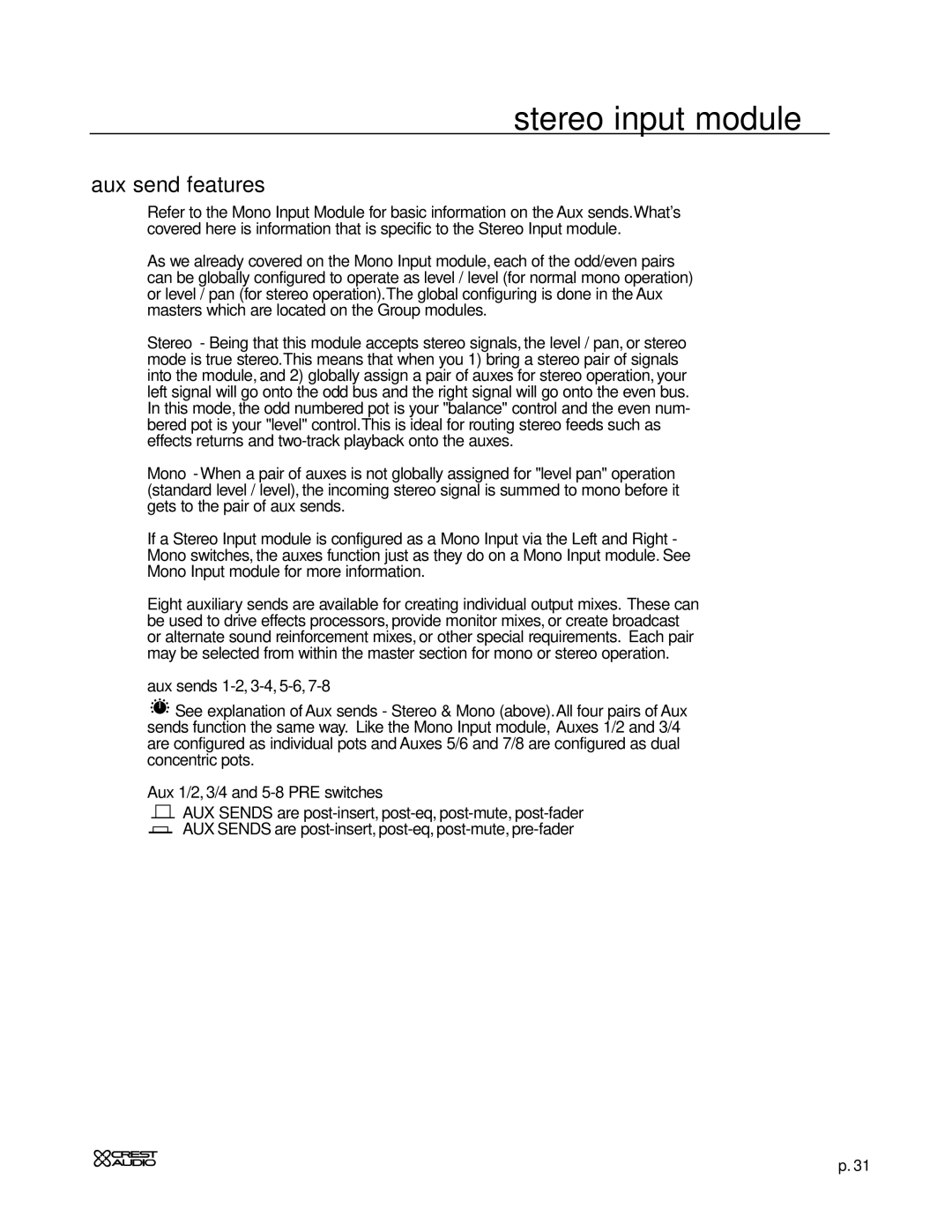
stereo input module 2
aux send features
Refer to the Mono Input Module for basic information on the Aux sends.What's covered here is information that is specific to the Stereo Input module.
As we already covered on the Mono Input module, each of the odd/even pairs can be globally configured to operate as level / level (for normal mono operation) or level / pan (for stereo operation).The global configuring is done in the Aux masters which are located on the Group modules.
Stereo - Being that this module accepts stereo signals, the level / pan, or stereo mode is true stereo.This means that when you 1) bring a stereo pair of signals into the module, and 2) globally assign a pair of auxes for stereo operation, your left signal will go onto the odd bus and the right signal will go onto the even bus. In this mode, the odd numbered pot is your "balance" control and the even num- bered pot is your "level" control.This is ideal for routing stereo feeds such as effects returns and
Mono - When a pair of auxes is not globally assigned for "level pan" operation (standard level / level), the incoming stereo signal is summed to mono before it gets to the pair of aux sends.
If a Stereo Input module is configured as a Mono Input via the Left and Right -
Mono switches, the auxes function just as they do on a Mono Input module. See
Mono Input module for more information.
Eight auxiliary sends are available for creating individual output mixes. These can be used to drive effects processors, provide monitor mixes, or create broadcast or alternate sound reinforcement mixes, or other special requirements. Each pair may be selected from within the master section for mono or stereo operation.
aux sends 1-2, 3-4, 5-6, 7-8
![]()
![]()
![]() See explanation of Aux sends - Stereo & Mono (above).All four pairs of Aux sends function the same way. Like the Mono Input module, Auxes 1/2 and 3/4 are configured as individual pots and Auxes 5/6 and 7/8 are configured as dual concentric pots.
See explanation of Aux sends - Stereo & Mono (above).All four pairs of Aux sends function the same way. Like the Mono Input module, Auxes 1/2 and 3/4 are configured as individual pots and Auxes 5/6 and 7/8 are configured as dual concentric pots.
Aux 1/2, 3/4 and 5-8 PRE switches
AUX SENDS are
AUX SENDS are
p. 31
